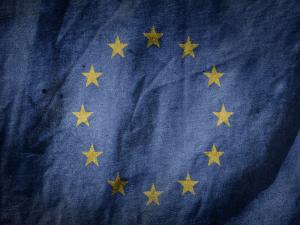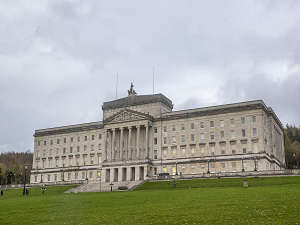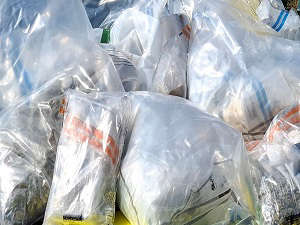
By Deborah McAleese, Press Association
The vice-president of the European Parliament has accused the UK government of not being brave enough to hold a second referendum on Brexit.
Irish MEP Mairead McGuinness said Theresa May's government does not have the courage to put Brexit to a second public vote, despite growing concern about the potential consequences of leaving the European Union.
She also accused the UK Prime Minister of not showing how she intends to ensure no return of the "borders of the past" on the island of Ireland.
"In Ireland, we are brave enough and courageous enough to have a second referendum," said Ms McGuinness, referring to the country's second referendum on the Lisbon Treaty.
"When we put the question first and we believe that the debate is not full then we go back to people and say 'look, here is much clearer information, our circumstances have changed, we'll put the question again on a number of issues.'
"That is brave politics to do that," the Fine Gael MEP told the Press Association.
She added: "Because the UK has not had that tradition and hasn't had the debate about Europe in the way we have, I think they are less able to do that.
"So, because of that, it means we have to be prepared for the UK leaving the EU."
Ms McGuinness also said she was concerned that Theresa May has so far failed to show "how she will deliver on her commitments to the (Northern Ireland) peace process and, more importantly, not returning to borders of the past."
"The clock (on Brexit negotiations) is ticking. I think some harsh things will have to be said so the UK understands our position," she added.
On Thursday, the Irish Premier Leo Varadkar mentioned two specific arrangements which he suggested could soften the impact of Brexit across the island of Ireland.
Speaking at an event during his first visit to Northern Ireland since becoming Taoiseach, Mr Varadkar suggested the possibility of an EU-UK customs union.
He also suggested a "deep free trade agreement" with the EU if the UK does not want to stay in the single market, with the possibility of its rejoining the EFTA (European Free Trade Association).
The EU is to meet in October to decide whether sufficient progress had been made in the first phase of exit talks to allow the negotiations to proceed to the next phase.


 PPS to consider any basis for appeal against Oliver MacCormack sentence
PPS to consider any basis for appeal against Oliver MacCormack sentence
 Working group to assess impact of trade tariffs on Northern Ireland businesses
Working group to assess impact of trade tariffs on Northern Ireland businesses
 Drugs worth £860,000 seized following search in Kilkeel
Drugs worth £860,000 seized following search in Kilkeel
 Additional public transport announced ahead of Open golf event at Royal Portrush
Additional public transport announced ahead of Open golf event at Royal Portrush